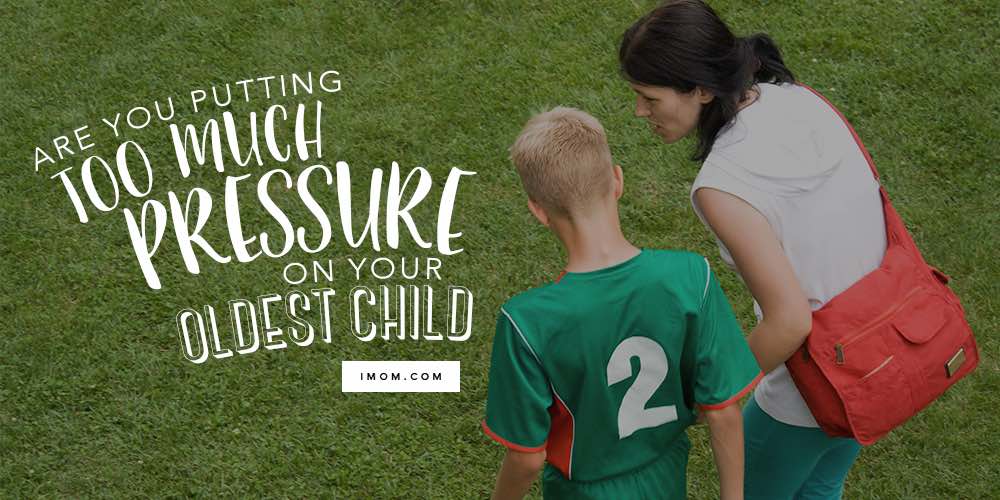My sister was the adorable one, universally loved. She was the baby. I was always the peacemaker, diplomat, negotiator. The middle child. Many people don’t realize that their birth order can influence their lives in countless ways. In his book The New Birth Order, best-selling author Dr. Kevin Leman explores this fascinating aspect of what makes us who we are. Personality traits, who we marry, the jobs we choose, our parenting styles—all of these can be affected by birth order.
What about your children? Your oldest child probably is more driven, responsible, and mature. And yes, your “baby” is likely more extroverted, funny, and cute. Even though you can’t change the birth order of your kids (or yourself), it’s still good to know these 10 ways birth order affects your children.
1. Firstborns pave the way.
Firstborn children are a bit like crash test dummies. Parents are learning with every experience. The baby comes into this world and mom and dad both look at each other and say, “What do we do now?” Natural instinct takes over, but there is certainly a steep learning curve when it comes to raising your oldest child.
2. Firstborns are natural leaders.
According to Dr. Kevin Leman, firstborn children are often high achievers, organized, and detail-oriented. He states they are natural leaders because more was expected from them. In turn, they expect more from themselves. “They’re the movers and shakers of life and they lead everything from the PTA to the U.S. Presidency,” Dr. Leman says.
3. Middle children can feel overlooked.
For middle children, everything always seems to be about somebody else. At times, they can feel like the odd man out in the family and may wonder if anyone understands them. They are constantly trying to live up to the firstborn’s legacy and dealing with the magical charm of the youngest. This usually makes for a mentally strong human being later in life—or someone who is insecure.
4. Middle children are resourceful.
Dr. Leman claims that middle children have the best psychological chance to become entrepreneurs along the lines of Bill Gates, Donald Trump, or Steve Forbes because they learn early on to be good listeners, negotiators, and people-pleasers. For those reasons, they can be perceived as friendly and trustworthy. “They are the most loyal friend on the face of the earth,” says Dr. Leman. Middle children are also likely to be mentally tough and independent because their siblings may be more likely to receive attention, so they can become very good at figuring things out on their own.
5. The youngest can do no wrong.
The baby of the family can’t lose position in life. The youngest child is the last and reaps the rewards of that. Moms especially hold on to their youngest as long as they can, and youngest children almost always have the unique ability to get away with just about anything. There is a prevailing attitude in the family that wishes to protect the youngest at all costs, even when it’s not rational. The baby learns that lesson early and applies it well. The most laid-back folks on Earth are usually last-born kids.
6. Youngest children steal the spotlight.
In Dr. Leman’s analysis, last-born children are usually happy people. They are likely to end up as entertainers—in just the family or as their chosen career. Famous examples are Ellen DeGeneres, Eddie Murphy, and Whoopi Goldberg. They are the least likely to wind up as president of the United States. The youngest child is usually very outgoing, skilled at manipulation, and very good with people.
7. Only children are super.
The only child is in a special class. Dr. Leman calls them “super firstborns. They’re little adults by age seven.” Sans any sibling rivalry, the only child gains the benefits of both the eldest as well as the youngest. This, of course, can be a great thing or a curse. For instance, the solo child tends to lean toward a self-centered existence and is spoiled at times. However, they also mature much faster and are generally special achievers.
8. Only children strive for perfection.
Firstborns can be perfectionists, but Dr. Leman explains that “only children are excellent candidates for growing up to be super perfectionists.” They want things to be just right and hold themselves and others up to very high standards. In many cases, they do not get along well with children of their own age. They prefer older classmates or even adults as friends. And Dr. Leman says, “The only child has a great chance of being extremely successful.” Famous examples include Albert Einstein, Lance Armstrong, and Elvis Presley.
9. What’s the deal with twins?
The mysterious children. Twins, especially identical, usually have a very deep connection with each other. They feel each other’s emotions and thoughts as if they were their own. In most cases, twins never lose a close relationship throughout life. For this reason, twins are usually very well-adjusted adults. They have a deep sense of security that stems from being born with an innate close connection. Quite a gift!
10. Here’s the other side of the coin.
Despite the truth of all the research and facts regarding birth order, birth order isn’t the only factor at play. Many aspects go into the development of a child’s personality and the adult he or she eventually becomes. Gender. Age gaps. Race. Social status. Religious beliefs. Married parents. Divorced parents. Many, many factors. Suffice it to say, human beings cannot be pigeonholed into set molds. We are all created with our own unique gifts and purposes. Birth order is just one tool to help us better understand ourselves and others.
In what ways have these birth order traits proven to be true in your children or yourself?










